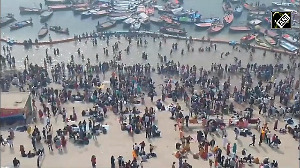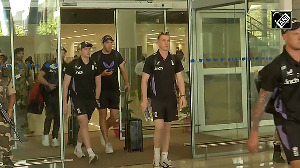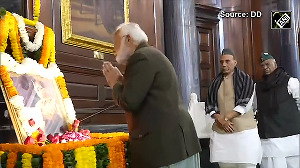In a move that will put severe restrictions on broadcasters wanting to use the high capacity Ku-band transponders to uplink from India, the upcoming uplinking policy proposes to confine them to Indian satellites only.
Most broadcasters are expected to migrate to the digital Ku-band from the analog C-band once it is allowed as the former allows 10-12 channels from every transponder against just one on the C-band.
However, the government's proposal to keep out foreign satellites may derail the plans.
Broadcasting industry points out that not many Ku-band transponders are available on Indian satellites -- the Intelsat series of Indian Space Research Organisation -- while the foreign satellites covering India may have sufficient capacity.
According to estimates, there are 16 Ku band transponders available on Indian satellites and most of them are taken up by Indian direct-to-home service providers and the government.
However, the government is planing to add 54 Ku-band transponders on the INSAT 4 series of satellites, which are expected to become operational in 2007.
"If the government does not allow channels to use foreign satellites, the purpose of the policy will not be met. There is not much capacity at present nor is it going to be available in the immediate future," said an executive with an Indian broadcaster.
The use of high-capacity Ku-band transponders for up-linking channels from India was expected to lead to a sizable reduction in operational costs. Every Ku-band transponder can accommodate 10-12 channels, as opposed to the analog C band, which can accommodate just one.
Thus, even though a Ku-band transponder costs 50 per cent more than a C band one -- $75,000 a year vs $50,000 -- multiple channel broadcasters can reduce their costs substantially.
For instance, the cost of an eight-channel bouquet will fall from $4,00,000 a year to just $75,000 with space to spare for two to four more channels. At the same time, the picture and audio quality will be better.
Ku-band transponders are now allowed only for DTH operations. The government prohibited the use of Ku-band transponders in 1998 for cable and satellite channels when some companies sought permission to start DTH operations in the country.






 © 2025
© 2025